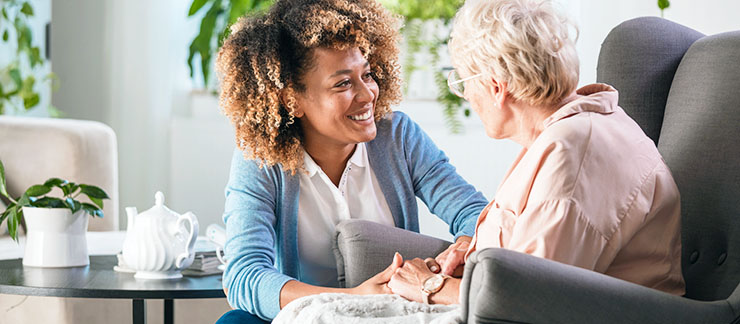
7 Household Hazards that Could Make Seniors Sick
Poor housing conditions can lead to a plethora of health problems—especially for seniors who spend much of their time indoors. Subpar air and water quality inside the home, for example, can pose serious consequences, such as respiratory issues, diseases, and other chronic ailments.
How can you make a senior’s home environment a safe haven and free of these hazards?
The key is to identify any potential health risks and learn how to avoid or remove them.
Common Health Issues Seniors Face in Their Homes
Family caregivers aim to create safe and comfortable living environments for senior loved ones. They remove tripping obstacles, properly label medications, and monitor for visible threats that may jeopardize safety and well-being.
But what about threats in the home that aren’t noticeable?
Here are seven household hazards that can cause health complications—and what you can do to protect your loved ones:
- Radon
Radon—an invisible, odorless, and tasteless gas—has been found in homes across the United States. You may not see, smell, or taste radon, but this doesn’t mean it has no impact on your health. Radon exposure is a known risk factor for lung cancer, so make sure to have your loved one’s home tested. Home radon tests are available for consumer purchase to monitor and warn about hazardous levels.
- Carbon monoxide
Carbon monoxide is another invisible, odorless, and tasteless gas that can be a health hazard. Carbon monoxide poisoning, a condition that requires medical treatment, can cause symptoms, including weakness, headache, blurred vision, and confusion. It can also cause loss of consciousness, brain damage, or death.
Make sure the home has proper ventilation to reduce the buildup of indoor toxins. Carbon monoxide detectors can be purchased and easily installed. It’s also important to ensure older detectors inside the home are working properly.
- Mold
Mold is a common indoor problem in areas that are humid or experience water leaks. Most kinds of mold do not cause illness, but toxic and harmful varieties exist. The elderly and people with weakened immune systems or allergies may be susceptible to mold.
Address any conditions that cause mold in the home as soon as possible. Cleaning out mold infestation can be difficult and may require professional assistance.
- Pests
Roaches, rodents, and other pests are more than just a disturbing sight. They can bring harmful bacteria and viruses into the home that can make a person sick. Seniors unable to keep their homes clean on their own may be especially vulnerable to pest infestations.
If an elderly loved one notices pests in the home, contact a professional exterminator to check the area and remove the unwanted pests. Occasional pest sightings may be the sign of a much larger problem.
- Poor water quality
Although most tap water in the United States is safe to drink, occasional problems may impact a person’s health. Some older homes built with lead pipes could cause lead poisoning. Houses with wells using dirty filters can cause unwanted chemicals, minerals, and even bacteria to build up in the water supply.
Test your loved one’s water and install filters to enhance the water quality.
- Allergens
Seniors who frequently experience symptoms such as runny nose, watery eyes, and coughing/sneezing at home may be affected by allergens.
Identify and remove sources of allergens, whether emanating from certain chemical cleaners or outdoor pollen, to alleviate these symptoms and help your loved one be more comfortable at home.
- Hazardous building materials
Most modern houses avoid using hazardous building materials. Some older buildings, though, may have been constructed with dangerous materials such as lead or asbestos. Exposure to these materials can lead to serious health consequences for the elderly.
Speak to a home inspector if you suspect your senior has dangerous lead or asbestos in their house.
In-Home Caregivers Create Safe Environments for Seniors
If an elderly loved one struggles to clean their home and maintain a healthy indoor environment, home care providers are available. An in-home caregiver will perform light cleaning duties and monitor for health risks.
Take the first step today by contacting your nearest Visiting Angels home care location. Our coordinators will discuss how our compassionate caregivers can make a difference during a free home care consultation.


